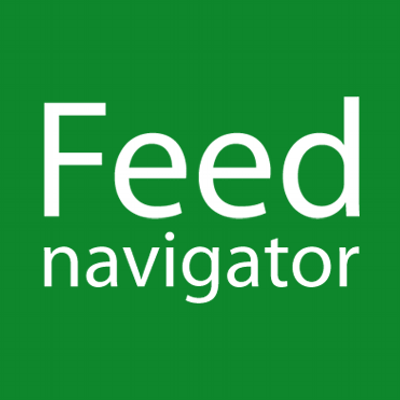
Investigative Journalist Carey Gillam Travels to Europe to Testify Against Glyphosate and Monsanto’s Deception
With Sunday night’s 60 Minutes investigation into how politicians played a key role in making it harder for the DEA to control the opioid crisis, the public got a damning first-hand look at how our elected officials blatantly put corporate profits ahead of the lives of the citizens they are supposed to represent.
If only 60 Minutes would take on glyphosate as well.
The most widely-used chemical in the world and sprayed on a huge portion of our food supply, (250 million pounds used annually in the U.S.), glyphosate was classified by the World Health Organization as a “probable human carcinogen” and the State of California now says that the chemical causes cancer. Glyphosate is also the primary ingredient in Monsanto’s RoundUp, the company’s major cash cow.
Just as U.S. politicians and government officials have favored the special interests of pharmaceutical companies in the opioid crisis, they have done the exact same with the ag-biotech industry and glyphosate.
Last week, Carey Gillam, author of the excellent book on glyphosate called Whitewash: The Story of a Weed Killer, Cancer, and the Corruption of Science and arguably the country’s leading investigative journalist in regards to this chemical, flew to Europe to testify in front of a European Union panel.
I wanted to get Carey’s take on the sentiment in Europe towards glyphosate, especially since numerous countries have been expressing strong concern over its safety and vowed to vote against renewing its license, which is up in December.
If glyphosate is not renewed, it would be politically and financially disastrous for Monsanto, even though its patent has expired and the company no longer has exclusivity to it.
Carey, where are we with the vote?
It doesn’t look they will ban it, as they do not appear to have enough votes. Conversely, they do not have enough votes to reauthorize it either.
Given that not all countries carry equal weight, the biggest ones — Germany and France — carry a lot of influence. France is against it, Italy is against it, and Germany is abstaining.
With the vote not appearing to go either way, there is a negotiation going on. Maybe it will be a 7-year or 10-year license with restrictions. Or, it could be just for farm-use only. Or, maybe the license will be extended for another 18 months to give them more time to figure this out.
What was clear is that people are very concerned about glyphosate’s use in desiccation – the drying of crops. (In the UK, glyphosate is used up to 78% on certain crops for desiccation.)
What were you invited over there to do?
This is the second time I was there, and this trip was to testify at a joint hearing of the European Parliament Committee on the Environment, Public Health and Food Safety and the Committee on Agriculture and Rural Development.
Seven experts were invited to speak, and the goal of this hearing was two-fold.
First, they wanted to get opinions on the science of glyphosate.
Second, they wanted to learn about the deception and behavior of Monsanto. And this part was key. If regulators are saying it is safe but Monsanto is actively colluding with the regulators, then the committee knows that it is not getting a straight answer.
What was the big question that they asked you?
They wanted to know what we need to do in order to change the system, and I told them that we need transparency.
Companies can’t submit secret studies that are not revealed. FOIA documents that we request have entire sections that are redacted. Studies are kept secret. There is collaboration between regulators and chemical companies. Regulators are supposed to work for us.
We need total transparency and if you have total transparency, you make it so much harder for the chemical companies.
What was something noteworthy that happened during the panel hearing?
Because Monsanto refused to show up for a prior hearing, the company was banned from attending this one.
Ironically, in his place was David Kirkland, a scientist that Monsanto previously hired to argue against claims that glyphosate is genotoxic (the ability to damage cell DNA and lead to mutations, including cancer). Through released documents, we know that he was on the company’s payroll.
David Kirkland claimed that he knew nothing about sitting in the chair of Monsanto, and when he tried to defend Monsanto, committee member Marc Tarabella from Belgium really went after him. Applause broke out when David Kirkland’s integrity was questioned. He did not take it well and left during a panel change.
I even had two slides about David in my presentation!
What was the pushback against banning glyphosate?
Some of the panel members think that we really need glyphosate and questioned how farmers will kill weeds without it. They do not know what would replace it. Also, some of these people said they believe what their regulators are telling them.
While they acknowledged that there may be safety concerns, there was real reluctance to embrace a pesticide-free, organic food production method. They do not think that it could feed the world.
How did you feel after the hearing ended?
I left there feeling heartened that there was so much interest in glyphosate. There were many TV crews and interview requests, and the panel dedicated 3.5 hours to this subject. People are starting to realize that the narrative you get from the chemical companies isn’t necessarily true.
In the U.S., we have become cynical or used to the fact that corporate interests have such a strong grip on our system. In Europe, many of the officials think they have a duty to the public, which is above that of the corporations. This was both surprising and refreshing.
After writing your book and covering this subject for so many years, what is the big takeaway that you’d like people to know?
My bigger message is that glyphosate and Monsanto are merely the poster children for much bigger problems, namely the amount of chemicals being used on our food supply today.
We have completely forgotten the lessons of Rachel Carson. We created the EPA, started the environmental movement and thrown it out the window. We are just not paying attention.
While organic is growing like crazy, it is just not translating on the political level because of corporate power. Money is everything, and it is very disheartening.
We need a real paradigm shift – changing the subsidy program, transparency in the regulatory system and reforms to campaign finance.
What seems to work is making change on the grass-roots levels — banning glyphosate at schools and parks, and working our way up from there. Grass-roots efforts will become stronger and stronger because people can make a difference and enact real change.
******
Be sure to check out Carey Gillam’s eye-opening new book Whitewash: The Story of a Weed Killer, Cancer, and the Corruption of Science. She does some very important work for our industry.
 |
Have a great day! 
Max Goldberg, Founder |
Quick Hits
* Greg Asbed won a MacArthur “Genius Award” for his work with the Coalition of Immokalee Workers (CIW) in Florida.
* If you’ve never seen the documentary Food Chains, which is all about the CIW, please do so. It exposes how slavery, modern-day forced labor and unconscionable labor abuse are taking place in the agricultural industry today.
* The wildfires have hit organic farms in Northern California very hard. Here is how you can help.
* Make sure to get your tickets for the upcoming Regenerative Earth Summit: Food + Climate + Culture, to be held in Boulder on November 6-7.
* There is a very impressive line-up of speakers and if regenerative ag is of interest to you or your company, this is one event that you don’t want to miss. Kudos to Seleyn DeYarus for making it all happen.
* This Sunday in NYC, there will be a Keep the Soil in Organic rally at 4:30pm. Details are here.
* A new restaurant is coming to Los Angeles called Highly Likely, which is backed by the people behind organic venues Cafe Gratitude and Juice Served Here.
* In sports news, the USA Rugby League World Cup captain is also an organic food entrepreneur. At the FIFA Under-17 World Cup in India, while some countries have made special requests for extra ice, extra luggage space, mosquito repellant and hot water for the showers, the U.S. requested organic food.
* Very frightening stuff. The GMO-propaganda website GMO Answers is supposedly receiving 2 million visits per year.
Weekly News Summaries

Is Anyone Surprised? A Culture Clash Already Between Amazon and Whole Foods
By Phil Lempert
Things between the two companies must be really bad because at a speech Sunday at the American Production and Inventory Control Society’s annual conference, Whole Foods' Co-Founder and CEO John Mackey described the culture clash as “challenging”.

Kroger Courts Emerging Brands at its First Natural Foods Innovation Summit
By Dan Monk
Seeking to attract emerging brands while staying ahead of the innovation curve, Kroger held its first Natural Foods Innovation Summit, which it expects to host a few times per year.

Organic Receives $20M in Grants from the USDA to Improve Production Methods
By Aerin Einstein-Curtis
The USDA's National Institute for Food and Agriculture has awarded $20 million in grants to fund research into improving production methods for organic food and feed.

Can We Trust the Online Vendors Who Sell Organic and Sustainable Meat?
By Lynne Curry
A look into the practices of online vendors Crowd Cow and Butcher Box, who may not be delivering good on their promises.

The "Staggering" Economic and Human Costs of Industrial Farming
While the price of conventional food may be slightly less expensive in the supermarket, the overall economic and human costs of factory farming are "staggering" and "cannot be ignored," according to a new report.

A Behind-the-Scenes Look at How Monsanto Killed Seralini's Study
With the release of the "Monsanto Papers," we get a behind-the-scenes look at how Monsanto was able to get Professor Seralini's study on glyphosate deleted from the archives of a scholarly journal for its lack of "conclusive evidence" - the first time this has ever happened.

CAVU Venture Partners Invests $10M into Hippeas
By Elaine Watson
Already available in 100,000 points of sale, Hippeas just raised $10 million, with the goal of doubling its 2017 revenues.

Cold Pressure Council Introduces HPP Certification Logo
By Cathy Siegner
Formed about a year ago, the Cold Pressure Council expects its members to start licensing the use of the new HPP logo beginning next spring.

Whole Foods Closes its 365 Store in Seattle
By Matt Day
In what could be a sign of things to come - and what might have been dictated by Amazon - Whole Foods has closed its first location of its new 365 chain.
The material in this newsletter is copyrighted and may be reprinted by permission only. All requests must be in writing. Please use our contact form to request republication rights.
Newsletter Archive
Quick Hits
* Greg Asbed won a MacArthur “Genius Award” for his work with the Coalition of Immokalee Workers (CIW) in Florida.
* If you’ve never seen the documentary Food Chains, which is all about the CIW, please do so. It exposes how slavery, modern-day forced labor and unconscionable labor abuse are taking place in the agricultural industry today.
* The wildfires have hit organic farms in Northern California very hard. Here is how you can help.
* Make sure to get your tickets for the upcoming Regenerative Earth Summit: Food + Climate + Culture, to be held in Boulder on November 6-7.
* There is a very impressive line-up of speakers and if regenerative ag is of interest to you or your company, this is one event that you don’t want to miss. Kudos to Seleyn DeYarus for making it all happen.
* This Sunday in NYC, there will be a Keep the Soil in Organic rally at 4:30pm. Details are here.
* A new restaurant is coming to Los Angeles called Highly Likely, which is backed by the people behind organic venues Cafe Gratitude and Juice Served Here.
* In sports news, the USA Rugby League World Cup captain is also an organic food entrepreneur. At the FIFA Under-17 World Cup in India, while some countries have made special requests for extra ice, extra luggage space, mosquito repellant and hot water for the showers, the U.S. requested organic food.
* Very frightening stuff. The GMO-propaganda website GMO Answers is supposedly receiving 2 million visits per year.
